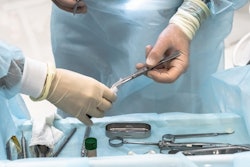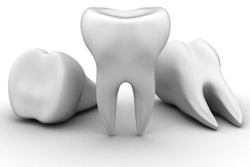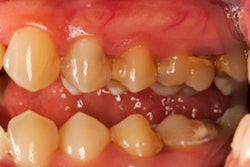
Clinicians must consider their patients' personal, religious, and humanitarian values to ensure using specific bone grafts does not violate their beliefs, according to an article published in the January issue of the Journal of the American Dental Association.
Some patients may refuse the use of bone tissue from another person or animal due to fear of disease transmission, moral conflict, or religious beliefs. Therefore, dentists are ethically obligated to explain bone graft materials, the rationale for their use, and potential patient outcomes and complications, the authors wrote.
"To advance our profession and enhance dental patient experience, we should be adaptive to the patient's needs and desires, but the selection should be on a scientific basis without any bias," wrote the group, led by Dr. Sukhjit Gill, a general dentist and research assistant at the University of California, San Francisco (UCSF) School of Dentistry (JAMA, Vol. 153:1, pp. 88-91).
Bone grafts may be made of natural or synthetic bone tissue, and in dentistry they are used to create a structure for bone formation and to facilitate wound healing. In most cases, bone tissue is used with dental implants to enhance bone regeneration after tooth loss, as well as in other periodontal procedures, they wrote.
Depending on the origin of bone tissue, bone grafts are classified into several categories. Most often, patients refuse allografts, or bone tissue taken from another person, and xenografts, or bone tissue from a different species. Some patients may refuse xenografts for religious reasons, for example, due to objection to the use of bovine or porcine products. For patients who refuse allografts or xenografts, clinicians can sometimes recommend alloplasts or regenerative bone grafts, which are synthetic substitutes.
Clinicians are required to adhere to principles including justice, autonomy, and veracity to treat patients ethically, and it is critical that they explain the use and types of bone grafts to patients. Clinicians must be prepared to explain the risks and benefits of all graft materials, while also considering factors including evidence-based clinical performance, the cost of the material, and expected treatment outcome, the authors wrote.
If dentists fail to engage thoughtfully with patients, there could be serious consequences, including potential treatment discontinuation and loss of trust in the treating clinician.
Furthermore, dentists should not assume patients' preferences based on their religious affiliations or cultural practices, Gill and colleagues wrote.
Instead, "dentists should be encouraged to hold conversations regarding religious beliefs and values when considering the use of bone grafts to better understand patient priorities and avoid conflicts," they concluded.




















